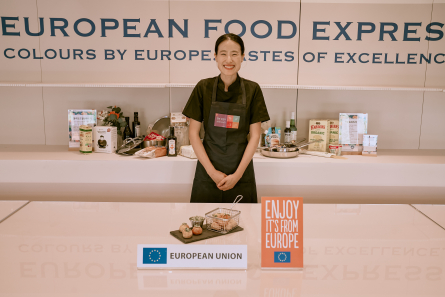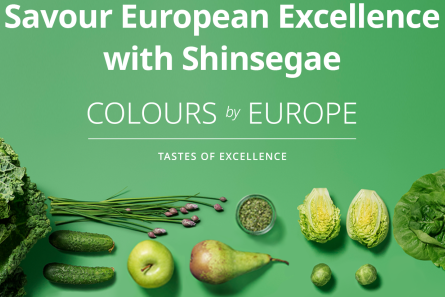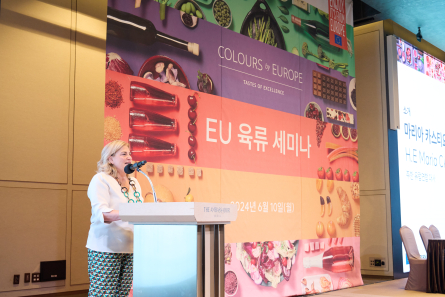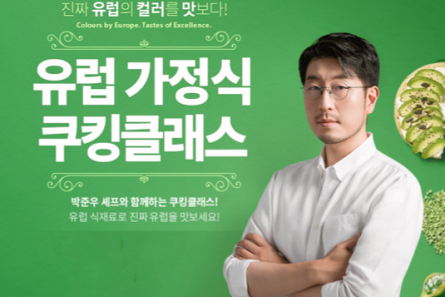EU organic: food with principles
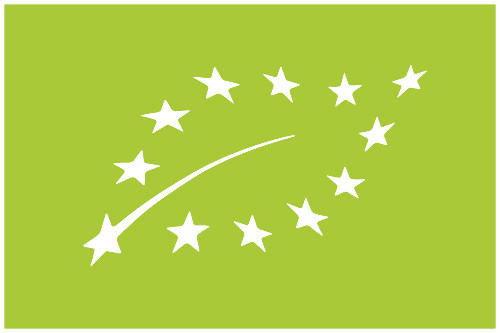
Respecting nature, enhancing the environment, producing high-quality food with limited use of pesticides and other external inputs, and a high standard of animal welfare: these are the hallmarks of EU organic food, guaranteed by EU legislation from farm to fork.
The EU has also introduced rules and regulations governing the production, distribution and marketing of organic products, which have a limited environmental impact.
All organic food produced in the EU carries a distinctive logo: a green label with 12 stars in the shape of a leaf. This is the EU organic logo, and it can only be used on products that have been certified as organic by an authorised control body.
Organic farming is an agricultural method that produces food using natural substances and processes. This means that it tends to have a limited environmental impact, as it prioritises:
- using energy and natural resources responsibly;
- protecting biodiversity;
- preserving regional ecological balance;
- enhancing soil fertility;
- maintaining water quality.
Organic farming rules also encourage a high standard of animal welfare, requiring farmers to meet the specific behavioural needs of their animals.
The use of chemical fertilisers, pesticides and antibiotics is strictly limited, and genetically modified organisms (GMOs) are completely prohibited.
EU regulations on organic farming are designed to provide harmonised standards for the production of organic goods across the whole of the EU. The aim is to satisfy consumer demand for trustworthy organic products while providing a fair marketplace for producers, distributors and marketers.
There are specific requirements for each of the main categories of organic food products under the EU organic logo system.
- Meat, cheese and dairy: there are rules on the origin of animals; the prohibition of cloning and artificially induced polyploidy; nutrition based on feed produced on the organic farm ; access to open-air areas and pasture for herbivores, and the prohibition of poor animal-welfare practices such as force-feeding and tethering; specific stocking densities and husbandry practices for different species; and the prohibition of growth promoters, hormones and antibiotics.
- Fruits and vegetables: strict limitations on the use of pesticides and fertilisers; use of organic reproductive material; and general rules on improving soil fertility.
- Cereals (wheat, sunflower, soy, corn and barley): EU cereals are subject to the most stringent quality controls in the world, and benefit from rich soil and good weather conditions. Organic farming rules promote the use of organic seeds and heterogeneous material, and strictly limit the use of fertilisers and pesticides.
- Confectionery and jams: EU conserves such as jams use centuries-old preservation techniques that involve natural, minimally processed raw materials and very limited use of preservatives that have been strictly assessed and approved.
- Oils and fats: EU standards distinguish between different categories of olive oil, requiring specific checks for virgin and refined varieties, testing for extra virgin olive oil. As with other processed foods, only a limited list of additives may be used when absolutely necessary.
- Drinks and beverages: only certified organic or natural flavours that are suitable for organic beverage production, and that create a natural taste, may be used.
- Spices and herbs: the use of synthetic pesticides is not allowed in the cultivation of organic herbs such as basil, chives or rosemary. There are also strict limitations on the use of fertilisers, and the use of ionising radiation is completely prohibited. All herbs are carefully labelled to ensure transparency.
More information about organic farming can be found here.
EU x Shinsegae Food Week 2025 Returns with a Celebration of European Excellence
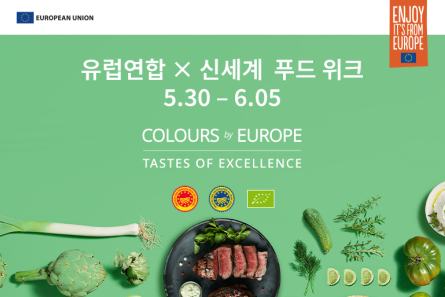
European Union Food Week at Hyundai Food Market
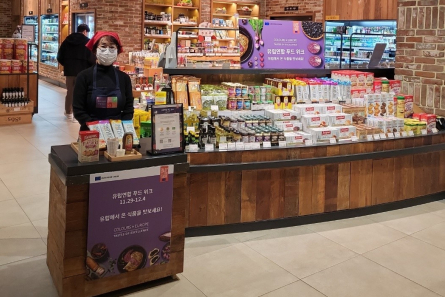
European Union Food Week has returned to Coupang
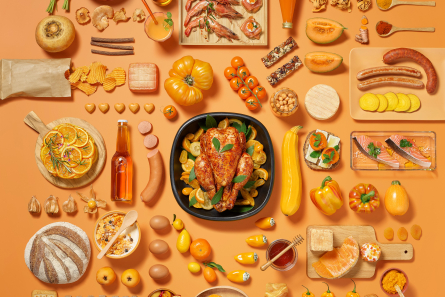
European Food Express dazzles Seoul with the taste of excellence on EU produce
